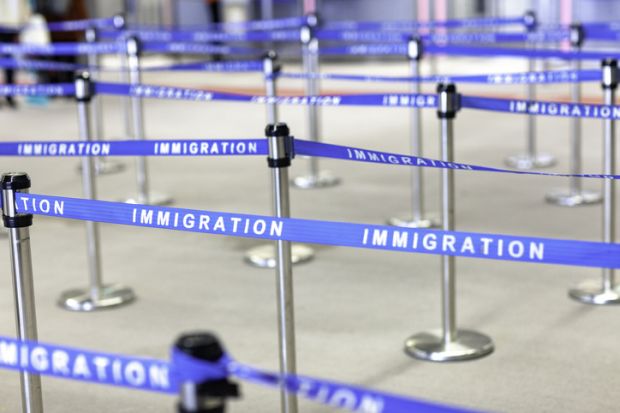Australia’s education minister has flagged migration incentives to boost enrolments from STEM-focused foreign students as part of a post-Covid reboot of the ailing international education industry.
In a speech delivered at RMIT University, Alan Tudge said that while Australia’s greatest skill needs were in data science, digital technology, health and engineering, almost half of universities’ international enrolments were in commerce.
Other countries have higher proportions of foreigners studying STEM, he said. “In the US, two-thirds of international student enrolments are in engineering, science and health.
“Can we use levers, including migration levers, to encourage more students to study in the areas where we know we have shortages? We do this to encourage students to study in areas outside the big capitals. Could it be extended?”
Australia already grants limited priority to would-be migrants with locally acquired postgraduate degrees in science, information technology and engineering.
But linking international education more closely with immigration, by boosting the skilled migration points for applicants with certain Australian qualifications, could risk a revival of the perverse outcomes experienced more than a decade ago.
Migration settings at that time encouraged international students en masse to switch to courses in accounting, hairdressing and cooking – fields almost guaranteed to provide immigration pathways. This led the government to sever the link between international education and migration in 2010, by slashing the number of occupations offering permanent residency status.
Phil Honeywood, chief executive of the International Education Association of Australia, said lessons had been learned from that period. “It was far too easy for students from certain countries to do inexpensive vocational qualifications with no intention of working in those professions,” he said.
“Since then, Australia has focused its skills-in-demand list on high-level vocations, and many have significant barriers to entry that filter out international students who just want to game the system.”
Mr Honeywood cited high English language requirements to enrol in nursing courses, for example. “The skills list will tend to self-select more academically focused students than what happened a decade or more ago.”
Mr Tudge’s speech, in which he launched consultation on a new international education strategy, advocated more diversity in Australia’s student source markets and modes of delivery.
Stressing the skill needs of giant neighbours such as India and Indonesia, Mr Tudge said UK and German institutions were educating tens of thousands of foreigners in their home countries. “Their success at scale highlights the potential to expand offshore delivery,” he said.
Mr Honeywood said the minister had outlined a challenge for the sector. “Australia has been comparatively slow to take up transnational education opportunities, particularly compared to the UK. If anything good comes out of the pandemic, it’s going to be to refocus our attention on what other modes of delivery we can genuinely look to in the future.”
Mr Tudge’s speech offered no short-term measures, notwithstanding fears that the termination of the JobKeeper wage subsidy programme and the continuing closure of borders to international students could tip scores of colleges into insolvency.
The minister said large-scale student arrivals were unlikely before next year, although the government would have a better idea by mid-year when uncertainties around vaccinations had been resolved.
Group of Eight chief executive Vicki Thomson said she looked forward to collaborating on the new strategy. “As the world’s third-largest provider of international education, Australia urgently needs a comprehensive international education plan with the flexibility to provide both onshore and offshore experiences for our international students,” she said.
The Innovative Research Universities group endorsed Mr Tudge’s argument for a more “nuanced” approach to international education, but said governments must develop a “clear road map” for the safe return of foreign students, starting with “small but scalable pilots” in each state and territory.
The group said the current lack of proposals for the minister’s approval showed that state-based plans for bringing students back had proven unworkable. “The commonwealth and the state and territories need to find a simpler way to approve pilot return programmes.”
Register to continue
Why register?
- Registration is free and only takes a moment
- Once registered, you can read 3 articles a month
- Sign up for our newsletter
Subscribe
Or subscribe for unlimited access to:
- Unlimited access to news, views, insights & reviews
- Digital editions
- Digital access to THE’s university and college rankings analysis
Already registered or a current subscriber? Login








